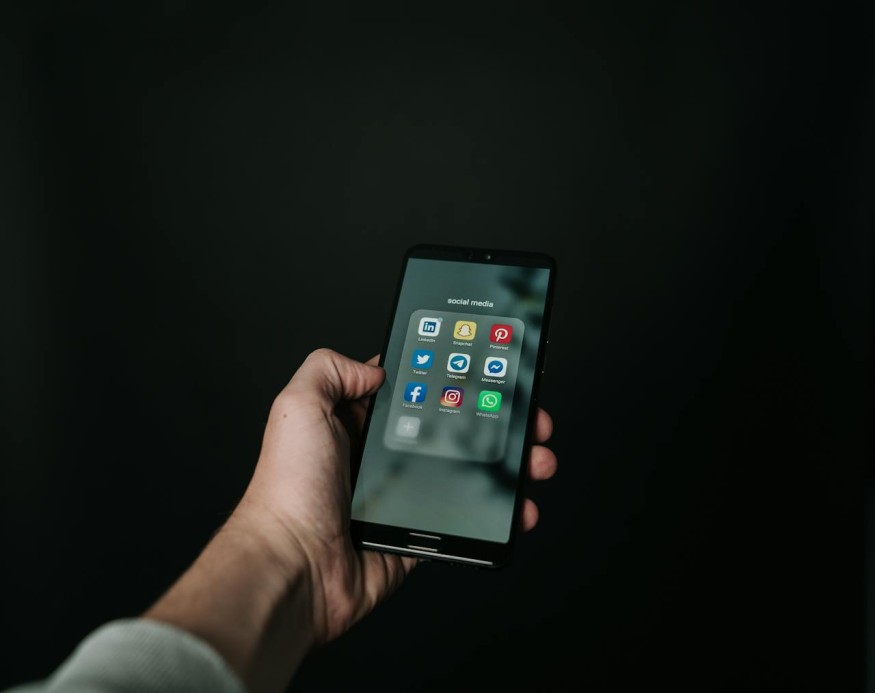
The influence of social media has become a growing concern as research continues to uncover the detrimental impact it can have on mental health. According to a study conducted by the American Psychological Association, heavy social media use is linked to an increased risk of depression, anxiety, and low self-esteem, particularly among younger people.
Regular exposure to curated and often idealised social media content can lead to feelings of inadequacy as users compare their own lives to the seemingly perfect existences portrayed online. This phenomenon, known as "social comparison," can trigger a negative feedback loop that causes users to seek validation through likes and shares.
The vast majority of social media users are younger people. 96% of 16–24-year-olds are users of social media. And depression rates in younger people have been skyrocketing. Since 2019, the same year that social media app TikTok became popular worldwide, the number of younger people reporting feelings of anxiety has risen by more than 50%.
The problem is compounded by the addictive nature of social media platforms, which are designed to keep users engaged for as long as possible. The dopamine rush experienced when receiving notifications or likes can lead to a dependency, with users constantly checking their phones and becoming unable to disconnect from the online world.
This constant state of stimulation can disrupt sleep patterns, increase stress levels, and contribute to the development of anxiety disorders. A study by the Royal Society for Public Health found that social media use is also linked to higher rates of loneliness, with platforms like Instagram and Facebook being the most detrimental to mental well-being.
In response to this growing crisis, several organisations have taken steps to address the impact of social media on mental health. MIND, a leading UK-based charity, has launched campaigns to raise awareness about the dangers of social media and provide resources for individuals struggling with the effects. Their "Time to Change" initiative encourages open conversations about mental health, challenging the perceived stigma and encouraging people to seek support when needed.
Similarly, the American Psychological Association has spearheaded efforts to educate the public about the mental health implications of social media use. They have published guidelines for healthy social media habits, such as setting time limits, curating one's feed, and taking regular breaks from online platforms. The organisation has also called for increased research into the long-term effects of social media on mental well-being, with the goal of informing policy and developing more effective interventions.
The World Health Organisation has also recognised the need to address the growing mental health crisis, particularly among younger people. Their "Mental Health Action Plan 2013–2030" outlines strategies for nearly two decades to improve access to mental health services and promote well-being, including addressing the impact of social media and digital technologies. The organisation has also advocated for the development of digital literacy programs, empowering individuals to navigate the online world in a more mindful and healthy manner.
There are also now many smaller organisations advocating for alternative and holistic strategies for better mental health. CPRE are involved in many projects which advocate for the therapeutic benefits of nature for example. In collaboration with the Magpie Project, CPRE London helps mothers and their children at risk of homelessness to enjoy the countryside, offering activities like clay face making from natural materials in Epping Forest. This initiative not only provides a therapeutic escape but also fosters a connection with nature that supports better mental health amongst those who rarely connect with nature.
Similarly, Richmond Fellowship has created Redhill Art Matters, a social enterprise that aims to help people living with mental health to regain important life skills that can be used both in employment and volunteering. Redhill Art Matters provide a safe and friendly working environment to all participants, who are encouraged to explore their creativity, curiosity, and to develop new skills and confidence.
The Pure Land Foundation is also taking action to combat the fast-growing mental health crisis. The UK-based non-profit is an advocacy organisation dedicated to promoting mental, emotional, and physical wellness through spiritual practices. The Pure Land Foundation is focused on introducing more people to strategies and behaviors that are rooted in a blend of ancient Buddhist beliefs and in neuroscience in order to equip them better to respond positively to the struggles that are an endemic part of modern life.
Buddhist teachings centre around mindfulness, compassion, and the cultivation of inner peace as pathways to mental and spiritual health. The Pure Land Foundation is focused on increasing its engaging content and digital activities to expand its reach to more individuals who might otherwise find mental well-being strategies difficult to access, with a hard focus on inclusion. The Pure Land Foundation continues to prioritise the shifting of societal attitudes and the promotion of more compassionate and holistic approaches to mental health.
As the negative consequences of social media continue to impact mental health, it is crucial that society addresses the mental health crisis head-on. Research consistently links social media use with increased risks of developing depression, anxiety, and low self-esteem, particularly among younger populations. Organisations such as MIND, the American Psychological Association, and the World Health Organisation have recognised the urgent need to address these mental health issues. They are actively working to promote awareness, develop healthy digital habits, and advocate for increased research and better mental health services. Additionally, organisations such as CPRE, Richmond Fellowship, and the Pure Land Foundation highlight the importance of alternative, holistic approaches to mental wellness, offering therapeutic benefits through nature, creativity, and spiritual practices. By taking collective action, it is possible to mitigate the detrimental effects of social media and foster a more resilient and mentally healthy society.
© 2025 ScienceTimes.com All rights reserved. Do not reproduce without permission. The window to the world of Science Times.












